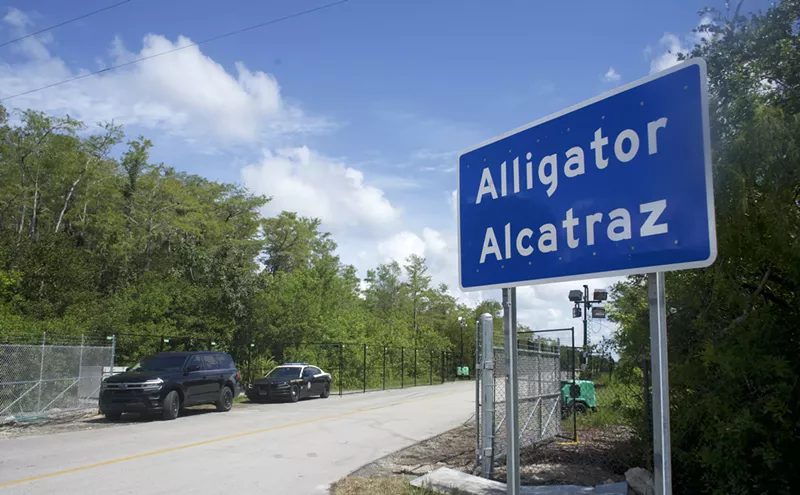At the center of the pageant is Gerard Depardieu, against whom any charge of bogusness must be rendered redundant, as Columbus. He acts gamely and with his customary aplomb, particularly taking into account that the actor is a Frenchman -- playing an Italian who comes to Spain by way of Portugal -- who speaks in English. Thus, the diction has an international flavor all its own: Columbus warbles passionately about being on "ze Pinta, ze Nina, ond ze Santa Maria" on this historic journey to a crew of mostly befuddled sailors. Earlier, he talks about making his case to "ze Quinn." This one had me stumped: Is Columbus referring to The Mighty Quinn, Anthony Quinn, or Quinn Martin? We are availed of the conundrum soon enough -- of course he means Isabel, the Quinn of Spain.
It is obvious that a considerable amount of thought has gone into the appearance of the famed discoverer. Barrel-chested and imposing as ever, Depardieu plays him as as a precursor to John Belushi's Bluto in National Lampoon's Animal House -- except that Columbus is more loquacious. His lackluster stewardship of the early colonies amounts to one big prank about the raising of a cathedral bell. Depardieu's periodontally putrid mouth suggests a lifetime of truffle-gathering in the forests, and so deeply ingrained is the impression of filth in this pioneer that you'd imagine entire heads of garlic are rotting under his armpits. True, the late Fifteenth Century didn't match our time for obsessive cleanliness, but beside the other members of the cast, this Christopher Columbus is a standout in the Dirt-Don't-Hurt Sweepstakes.
Some of the acting surpasses ludicrousness. Isabel is played by the Empire State Building -- here bearing a remarkable resemblance to Sigourney Weaver -- flown in to Costa Rica especially for the occasion, draped in faux renaissance costumes (by Charles Knode) and bearing a bewigged hairdo (by Paula Gillespie) to eclipse any in cinema since the days when Elizabeth Taylor played the Quinn of the Nile. An alternately saber-rattling and foppish Armand Assante is the treasurer to the House of Aragon -- enough said. Best of all, for those who like to mingle the unconvincingly historic with the campily histrionic, is the performance by American actor Michael Wincott, who plays the Spanish nobleman Adrian de Moxica, an adversary of Columbus. Equipped with an accent developed after years of waiting tables in New York while attending Juilliard, Wincott's evil-hearted Moxica suggests a New World Darth Vader -- played by Cher.
As the cannabis was not forthcoming at the screening, I could only listen in stupefaction to the music Vangelis provided for Ridley Scott's audiovisual assault. The Greek-born former advertising composer, whose score for Chariots of Fire had the single virtue of being monothematic, pulls out all the stops in 1492. It's as if the entire history of Western music, from the great to the godawful to everything in between, had been placed inside the same synthesizer and spewed forth. The sounds are immense. They are also incessant. And what they convey, other than severe gastric distress, is quite beyond the ability of these ears to assess.
In the current issue of that premier industry-licking publication, Premiere, there's an amusing article on the making of 1492. We learn that Gerard Depardieu's mishaps with the English language extended beyond the script (written, incidentally, by a Frenchwoman, Roselyne Bosch). He called the director "Reed-lay." We also learn that Scott hired six members of the Waunana tribe, who had previously figured in Roland Joffe's The Mission, to play the Taino Indians Columbus first sees upon landfall in the New World. It would appear that these tribal actors shuttle between their forest huts and Hollywood Boulevard and are probably upstanding members of the Screen Actors Guild. But the director was notably impressed: "`Fuck me,' he whispered excitedly as he watched the chief's performance through the lens. `Fucking Sir Laurence Olivier couldn't do better than this.'" It may come as a surprise to Reed-lay, but Fucking Sir Laurence Olivier embarrassed himself many times at the end of an otherwise distiguished career -- without once pretending he could play a naked Taino Indian galavanting in the sands of Hispaniola. Still, it gives a good idea as to the level of intelligence and megalomania of the entire undertaking.
Let there be no doubt regarding Reed-lay's pyrotechnical camera display, though. Some of it is very sightly. But 1492 gives little clue as to why, as Cole Porter put it, "They all laughed at Christopher Columbus when he said the world was round." Maybe it was his funny accent.
1492: CONQUEST OF PARADISE
Directed by Ridley Scott; written by Roselyne Bosch; with Gerard Depardieu, Armand Assante, Sigourney Weaver, Fernando Rey, Frank Langella, Angela Molina, Michael Wincott, and Tcheky Karyo.
Rated








